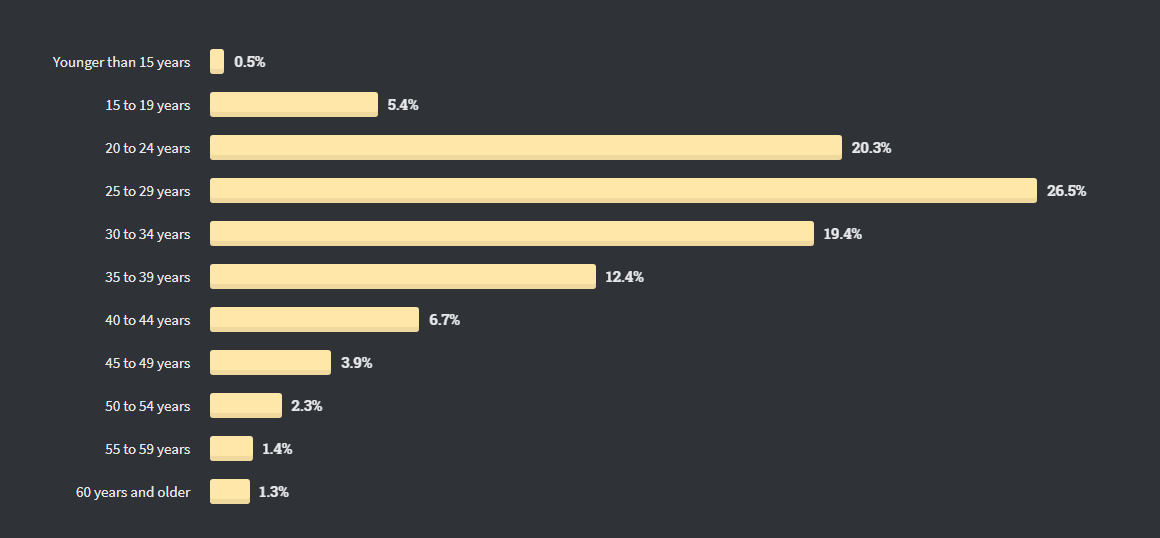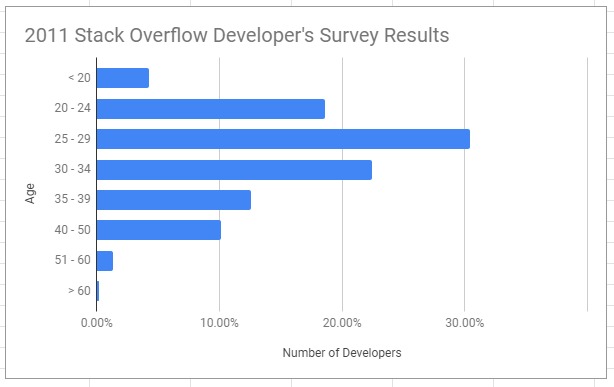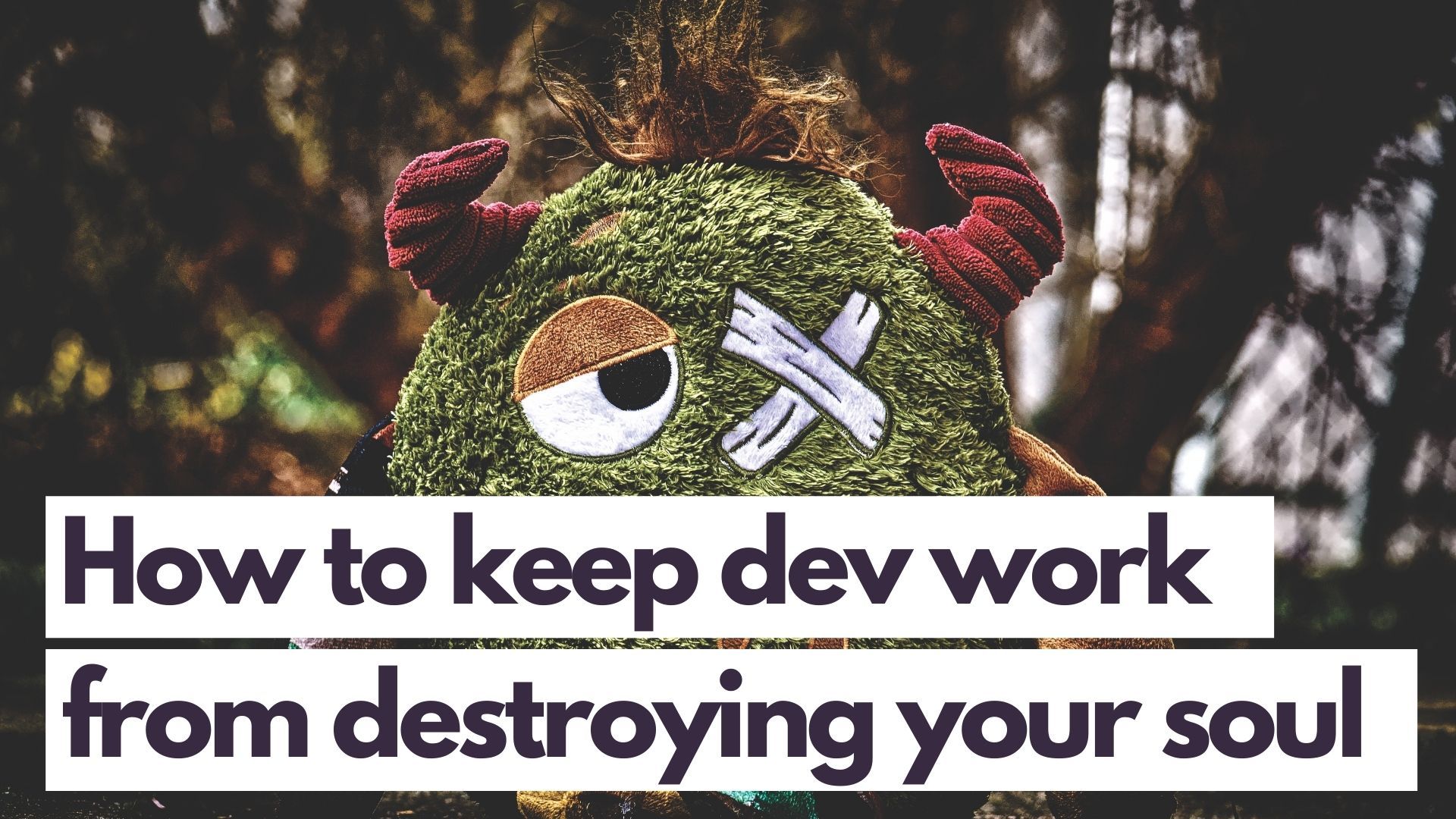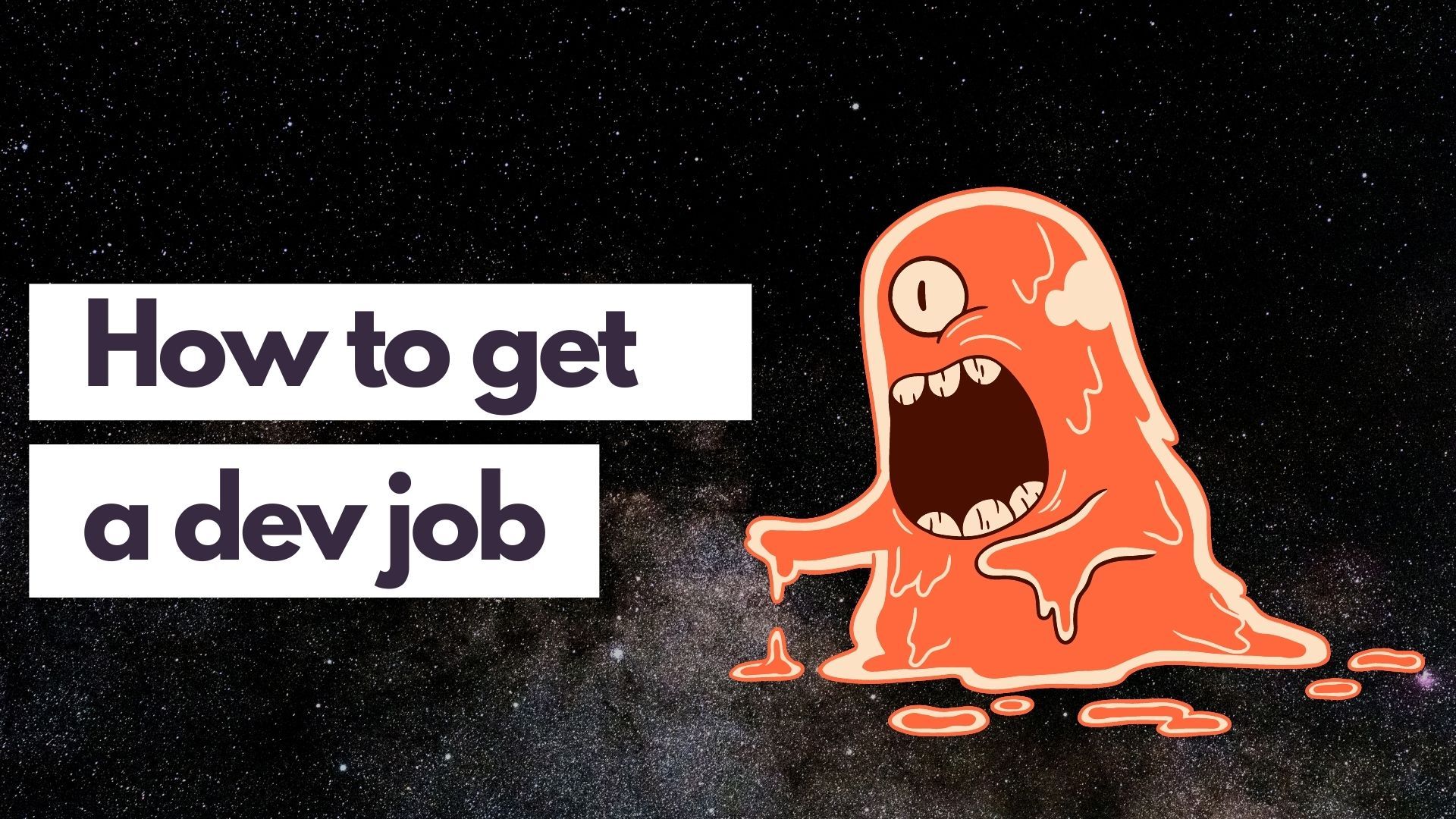Do Dev Careers Really Die At 35?
Where are all the elderly developers? Where did they all go? It’s not like they just disappeared into another realm…or did they? How did we arrive at these questions? Why does it matter? and do dev careers really start to die when you turn 35?

where do the elderly developers go?
When it comes to dev work, there seems to be a curious trend in the workplace. The cohort of developers seems to be full of young people — straight out of college, boot camps, and self-taught courses kind of young.
Sure, we have the outliers here and there.
But where are all the elderly developers? Where did they all go? It’s not like they just disappeared into another realm…or did they?
How did we arrive at these questions? Why does it matter? and do dev careers really start to die when you turn 35?
Let’s start by looking at some stats
According to the latest StackOverflow Developer’s Survey, the largest cohort of developers sits in the 25–29 years old age bracket.

If we wind back the clock ten years earlier, the graph based on the raw data available from 2011’s Stack Overflow Developers’ Survey Results looks almost identical.

This leads to the question — 10 years on, where did everyone go?
It’s easy to simply look at these graphs and assume that the data mix is unbiased and picked from a fair and random pool. However, in reality, these figures are based on a survey distributed by StackOver to their community members. This can lead to a skew in the age range of users that favors the under 29 cohorts.
Another thing to consider is that the type of content on StackOverflow is geared towards those who are starting out on their journey. By the time a developer has spent a good decade in the industry, it should be alright to assume that they don’t need to lookup certain things like how nullPointerExceptions work anymore.
In theory, most of the questions and answers that are on StackOverflow for their particular tech stack have already been encountered, experienced, and debugged by the time a developer turns 35. This is also on the assumption that they started their tech careers in their early to mid-20s, where the cohort of respondents seems to be at its strongest.
What really happens to developers after they turn 35?
The thing is — if you walked into an office, or logged into a Slack channel, there’s a high chance that you’ll encounter someone still in their 20s or early 30s.
There’s something about the young and youthful that makes you wonder if there are actually any older developers at all. Sure, there’s the occasional outlier like the team lead and project manager — but where is everyone else?
The general career path for a developer looks something like this:
- Junior dev
- Software developer
- Lead developer/technical architect
- Team lead
- Project manager
Once you’ve hit the senior developer title, the only progression upwards is some sort of management role. However, not everyone wants to be a manager and not everyone wants to feel like they’ve reached a dead-end in their career either. In the grand scheme of things, many of us don’t want to spend our time doing the same thing over and over again.
What actually happens is that by the time a developer has been in the game for a while, many start to look at their options and what’s available to them. Some may start to shift their careers away from the traditional 9 to 5 and into spaces like freelancing, starting their own startups, launching their own solopreneur apps, consultancy, or teaching.
Others shift from software and general application development and to newer fields like data sciences and AI.
Like all careers, the transition often occurs after a few years into working on the job. By then, you’ve seen almost everything — things start to feel routine. If you started in your 20s, by the time you hit your 30s, you might start to question and look beyond the code.
So, what are your choices?
By the time you hit your 30s, or have at least half a decade and range of work under your belt, you’ve also reached an age where babies make an appearance or you’ve decided to call it quits and go traveling. While the latter is a bit limited in the current circumstances, the shift into remote work and the growth of hustle culture have increased significantly.
As developers, we’re more equipped than others to build and create things out of nothing. It’s not hard for us to bootstrap an idea on a shoestring budget. This is our advantage — making entrepreneurship an even more lucrative prospect.
After reaching the end of the line of pure and linear dev work progression up the ranks, you can either keep going and into a management role — or you enter an undefined space.
This undefined space becomes a pick-your-own-adventure kind of gig where you’ve got enough experience to demand higher rates, but also uncharted territories that keeps you excited about waking up each day.
Because let's be honest — no one wants to live their life on monotonous repeat. That stuff is soul-draining. You became a developer for a reason. If it’s not to challenge yourself, then to satisfy some sort of curiosity.
Being part of the 30-something developer cohort myself, I’ve moved from pure development work and into a strange space that mixes freelancing with technical writing, SEO, and marketing — in addition to actual dev work as well when being in the office and sitting through a 9 to 5 isn’t required.
I haven’t exited the dev world. However, I’ve just moved into a different and unexpected space that didn’t exist back when I first started my career as a developer. Truth be told, maybe it did exist but just hasn’t matured or has the same amount of demand as it does now. Or perhaps I was just oblivious to its existence at the time when I started my dev career way back when Angular.js and GWT were still a thing.
Wrap up
Whatever the case, dev careers don’t exactly die off when you turn 35. Rather, it’s the movement of cohorts into different spaces and places that most likely impacts the decline of this particular age group in the dev world. The ratio of young vs old is also impacted by the growing numbers of young people entering the industry as well. There are more young people getting into dev work than there has ever been in history. It’s an in-demand space with advocates, courses, and growing accessibility for education and training.
It’s hard to chart all the possible choices that a developer transitioning out of traditional dev work might go. In part, it’s a world’s your oyster kind of situation.
My personal interests led me to where I am now in my dev career. For others in my cohort, it’s driven them into spaces like game dev, AI, virtual reality, and entrepreneurship.
Don’t get me wrong, there are also people that I grew up with as developers who are still developers, happily doing their thing. Some are having existential crises and trying to figure out what to do next. For others, it’s transitioning into dev work as juniors in their late 20s and early 30s.
In general, it’s all part of moving into the third decade of life where you start to make changes and move in the direction you want after figuring yourself out. You’ve figured out your priorities and what you generally want out of life by the time you hit your 30s. Some start earlier than others, some are late bloomers. Whatever the case, it usually happens around the time you turn 30.



Comments ()